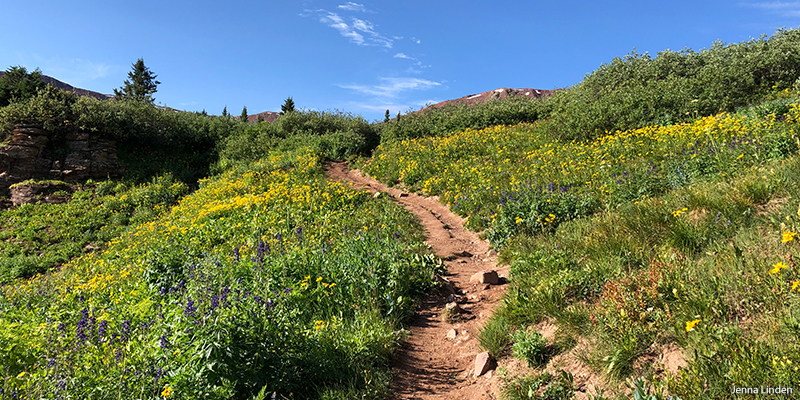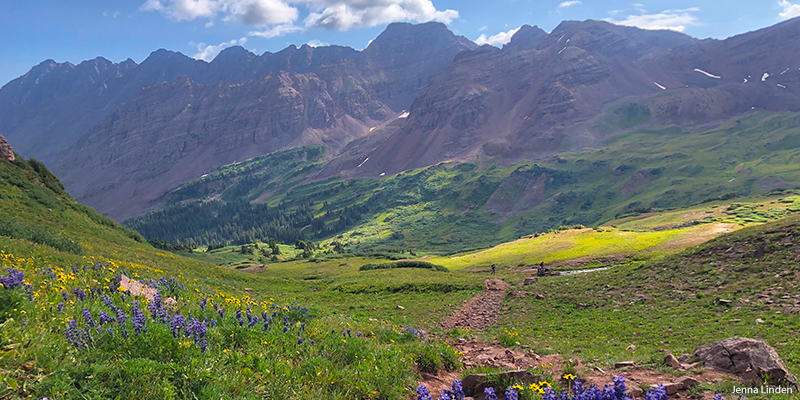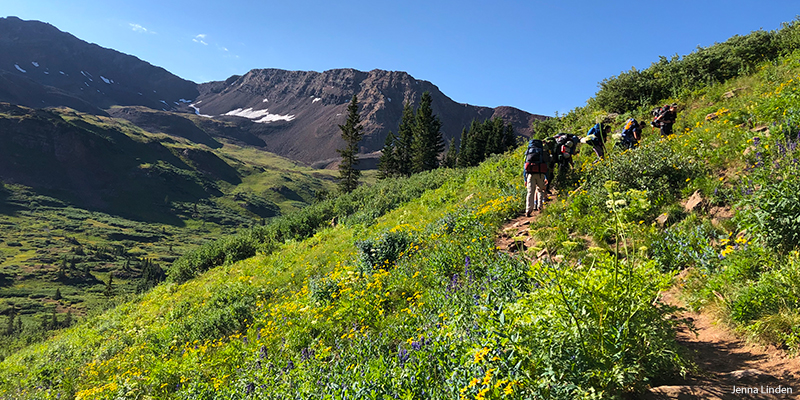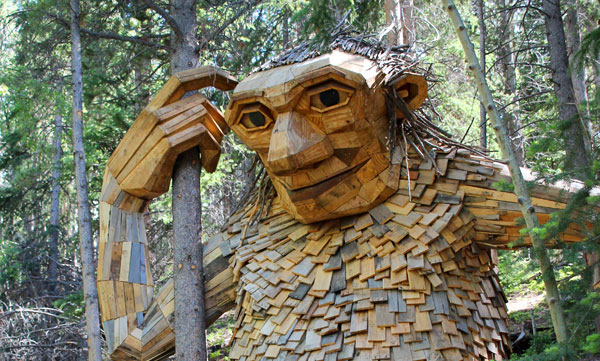Gear Up for Summer Hiking
Summer Hiking Season, get ready
Perhaps you just discovered hiking in the mountains or are an old veteran. Either way, you always need to prepare for summer hiking. Having well-adjusted gear and being physically fit is essential to enjoying the hiking season. Day hiking is a great way to get in shape for longer hikes or backpacking. Perhaps you have only ever been a day hiker. There are many nice day hikes all over Colorado, which will suit any hiker, group, or family with children.Getting ready for a day hike is relatively easy. It’s best to have a small backpack to carry basic gear, such as:
- A water bottle. You will get thirsty even if you’re going for an hour.
- Sunscreen. High-elevation sun is very damaging. Even on cloudy days, sunscreen is important.
- A lightweight rain jacket or windbreaker. Weather conditions change quickly in the mountains.
- A map or at least a definite idea of where you are going. Cell phones are not reliable in the mountains.
- A snack. It’s easy to think you won't need anything to eat, but snacks are a good idea to bring along, just in case, and enjoy at your destination.
- A hat or visor, especially on a sunny day. You can always store it in your pack.
- A camera is not essential but nice to bring along.

Tips for Breaking in New Summer Hiking Boots:
- Check the Fit. Once you're ready for the real deal, try on your new boots with a pair of summer hiking socks, preferably your favorite pair. Take your time to line up the tongue and gussets and lace them up snugly (but not too tight!). You’re forming creases on the tongue and gussets that will eventually custom-fit your new boots to your feet.
- Start Small. Now that your boots fit, wear ‘em! Keep them on your feet as you do small household chores like vacuuming or taking out the trash. It doesn’t need to be for long, but it should be often, and you should make sure you’re moving, not just standing. Throughout this process, the sole of the boot will slowly start to form the shape of your foot, and though it will probably feel stiff at first, eventually, you’ll make those uppers nice and supple.
- Build Up. Once you’ve broken them around the house, take those new boots out for walks. Wear them when you take the dog for a walk or when you head out to restock on groceries. Start with short excursions and work up to longer walks or ones with different terrain. You can build up from here as well by wearing a backpack loaded with steadily increasing amounts of weight
- Listen to Your Body. If at any point in this process, from mowing the lawn with your new boots on or taking a two-mile walk around your neighborhood, you feel like your boots are pinching your feet, or if you take them off and find that your feet are covered in blisters, you might need to reevaluate some of these steps or even your new boots entirely. If the fit is the problem, you must return your boots and try a different size or brand. But blisters and discomfort could also be caused by moving through these steps too quickly and taking on too much too soon or by any rocks or dirt that find their way into your boot during your jaunts around the neighborhood. It might even be your feet that are the problem, which can easily be fixed by spending more time walking around barefoot at home, clipping your toenails, or using skin cream to avoid cracking. Whatever it is, make sure to take the time to do some troubleshooting because your feet will ultimately thank you.
- Hit the Trails. Once it’s deemed safe, you’ll be able to get out and hike with your new boots without any growing pains!
Getting in Shape for the Summer Hiking Season
Regardless of whether you’re breaking in new gear, it’s important to be in shape for the summer hiking season. Normally, you could do this by starting with small hikes and working your way up to all-day hikes, but this isn’t possible for everyone right now. When it comes to hiking, there are three distinct categories where you will need to be in shape: Cardio, Strength, and Endurance. Each of these, from the strength in your legs and core for carrying that pack to your ability to hoof it up that scree field without getting winded, will feed into each other to make you a strong hiker, and there are a lot of exercises you can do right from home to get ready.
Walking and Exercises for Hiking Fitness
Walking, in general, will be a super useful exercise for you, and while longer walks are great, a short, 10-minute walk around the block is also a good way to warm up for more intense exercises. You don’t need any real equipment, though if you have dumbbells, resistance bands, or other home workout equipment, that’s wonderful. Soup cans, laundry detergent bottles, or water jugs make great weights. Exercises like squats, lunges, planks, push-ups, and crunches don’t require equipment except for the environment around you. To prep for those steep inclines in the mountains, use the stairs in your house or apartment building or take a daily walk in uneven terrain or hills. If you don’t have access to stairs, find a sturdy box or stool and do some step-up exercises for many of the same effects (for extra strength training, slowly add weight to your backpack and wear it while you do this). *Please note that listening to your body when exercising is always important. Take rest days, stay hydrated, don’t push yourself too hard, and STOP if something feels wrong. Remember, you won’t be able to do any hiking this year if you injure yourselfStaying Positive
It can be easy to let current events get you down, especially when they stop you from getting outside and enjoying nature as the weather warms up. However, one of the best ways to stay positive is to have something to look forward to. So work hard, prep your body and gear, and hit those trails for an epic mountaineering season as soon as the coast is clear!Written by Emily Krempholtz






